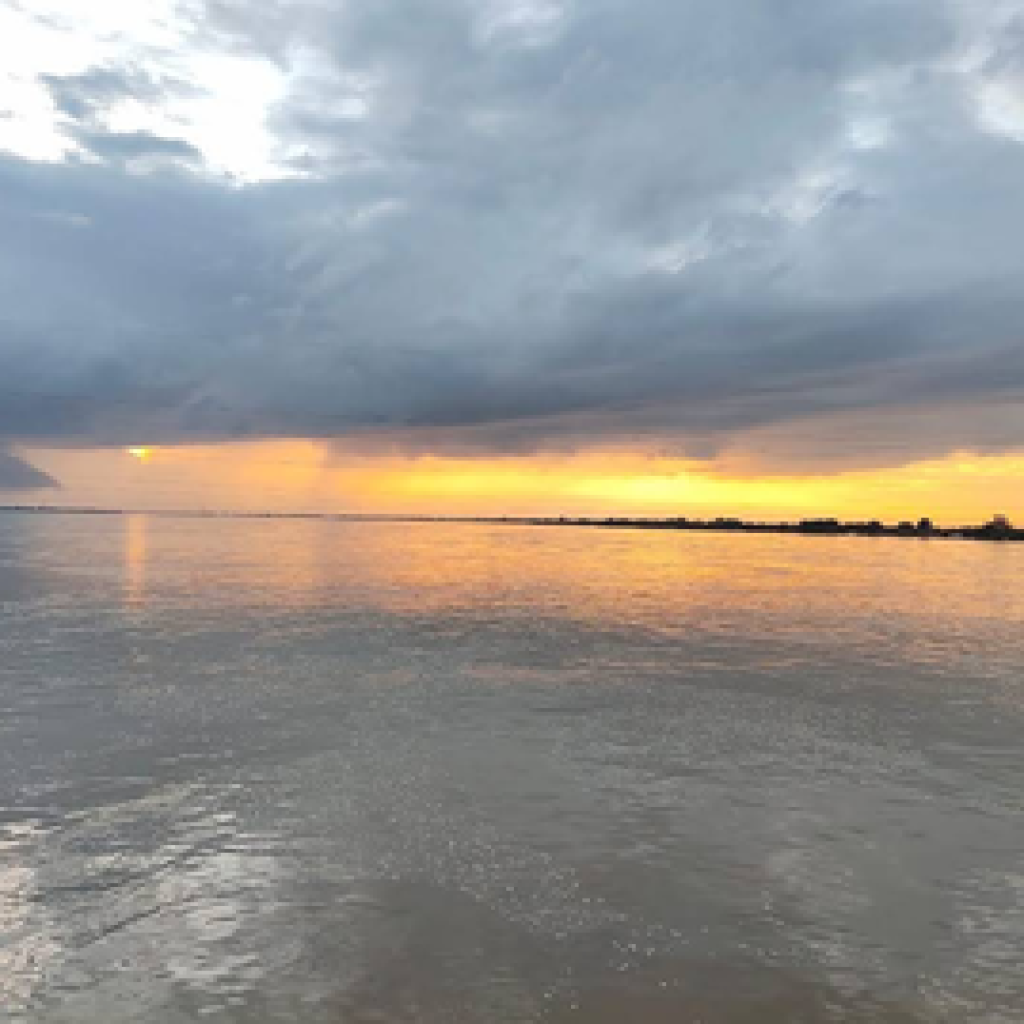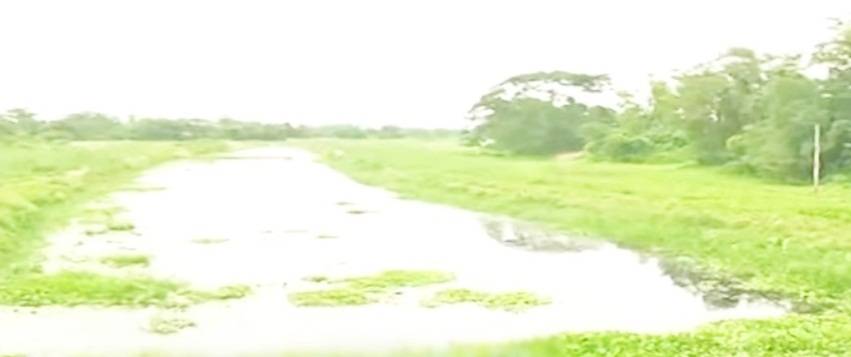Raising concerns over the growth of hyacinths on the river bed, Prasad K Dash, a scientist of Odisha Biodiversity Board, said these invasive species are an indicator of bad ecological health…reports Pragati Prava.
The disappearing Sukapaika river has also left a mark on the health and wellbeing of the people living around it.
“We are sick of water weeds (hyacinths) that cover the stagnant water on the riverbed like a thick mat. These weeds not only turned the water into a breeding ground of mosquitoes and flies but also a habitation of poisonous snakes,” said Sd Sajid Ali (48) of Praharajpur.
Roshan Rath, reckoned anecdotally, that he hears of at least 10 cases of snakebite every year.
“The Cuttack Drainage Division gets a huge sum to clear the weeds but they don’t put much effort into it. Rather they siphon off a huge amount of money. Groups of villagers have been clearing some patches of the river from time to time, but the weeds regrow soon,” said Ratikanta Patnaik (48), a villager of Praharajpur.
Raising concerns over the growth of hyacinths on the river bed, Prasad K Dash, a scientist of Odisha Biodiversity Board, said these invasive species are an indicator of bad ecological health. Hyacinths create a conducive environment for the growth of disease pathogens, insects and mosquitoes by obstructing sunlight that is vital for aquatic life. He maintained that it is difficult to get rid of the weeds and freshwater flow may prove beneficial.
Dr Ashok K Satpathy, a paediatrics specialist at a rural training centre of the Kalinga Institute of Medical Sciences (KIMS) at Kalarabanka, which lies on the bank of Sukapaika, said, “The number of patients affected by various skin and vector-borne diseases such as scabies, malaria and dengue has gone up since the river died.” He attributed the reason to the unhygienic condition created by the hyacinths.
Meanwhile, encroachments spread
As these multi-faceted ripple effects were unfolding, encroachment was growing along the river.
“Unscrupulous people have erected brick kilns, developed ponds and other structures including houses on the riverbed,” said Sajid Ali (48) of Praharajpur. “Many people have even acquired 99-year lease pattas through illegal means.” The patta land on the river would amount to more than 500 acres along the entire length of the river, he added. Activists and journalists who have tried to figure out the nature and extent of these encroachments have been met with silence.
RTI activist Prashant Pradhan, a native of riparian Kamarpada village in Dharina panchayat, had applied to the Kishan Nagar tahsildar under the Right to Information Act in 2003 and then again in 2010 about the legal standing of these leases. However, he is yet to get any response. Sushant Jena, a correspondent of a vernacular daily, had also sought to know the encroachment status on the Sukapaika river bed under the RTI in 2019 and then recently in June 2021. He also hasn’t heard back.
If this evasion is any indicator, the Sukapaika Bachao Abhiyan (SBA) has its work cut out for them.
SBA was born in 2016 under the leadership of Dr Rath and was an attempt to bring together the affected communities. The group gained momentum in 2019 and currently, more than 10,000 farmers, fisherfolk, doctors, engineers, advocates, educationists, are its members, said Dr Rath.
In January 2020, over 8,000 villagers signed a petition asking to construct a sluice gate near Ayatpur to restart the flow of the river; this was submitted to Chief Minister Naveen Patnaik, said Sisir Das (65), a senior advocate and the legal advisor of the SBA, who resides in the riparian village of Praharajpur.

They moved the State Human Rights Commission in August 2020, citing the drastic impacts on the health and livelihood of around 10 lakh people. They had also moved the National Green Tribunal (NGT) in January 2021 under Sections 14, 15, 16, 17 and 18 of the NGT Act, 2010 appealing the tribunal to direct the Govt of Odisha to reopen the river mouth, according to Sisir.
In January 2021, a team of officials from the Revenue and Water Resources Departments, led by district collector Bhabani Shankar Chayini, visited the river in its 27km stretch — from its origin till the river joins the parent river Mahanadi — to take stock of the situation. Chayini directed the concerned revenue authorities to take immediate steps to clear the encroachments. The SBA also moved the Water Resource Department Secretary Anu Garg in February 2021, following which, the department officials visited the river and prepared an action plan of Rs 44 crore for its revival, pointed out Rath.

In a review meeting presided over by Cuttack MP Bhartuhari Mahatab on July 2 this year, Chayini had directed the Water Resources Department to prepare a detailed project report to carry the revival plan forward.
While the Cuttack district collector and the concerned engineer could not be contacted for their take on the issue, those fighting for the river know that clearing the encroachments is going to be the government’s biggest challenge. According to Dr Rath, many people have obtained pattas on the river bed by greasing the palms of some officials.
Ironically, an alleged case of encroachment may have happened in Rath’s own backyard. A pond was built at Bodhapur village in the middle of river Sukapaika in 2019 at an expenditure of Rs 16 lakh. According to Dr Rath, while the pond is of immense benefit to the people, its construction on the river bed is illegal and has been done without the permission of the Revenue Department.
Bodhapur Sarpanch Chagala Behera, however, maintained that the pond has not been constructed on the river bed, but on the river bank on unused government land demarcated by the tehsildar. It’s not illegal and is the sole source of water for the people and animals in the village, especially during the harsh summers, he said. He added that the panchayat is going to lease out the pond for fish farming soon.
The SBA and other community members are cautiously optimistic to see their efforts starting to move some pieces on the board, but they are aware it’s going to be a difficult fight and close to home. The villagers have warned that they will take to the streets if the government fails to revive the river with immediate effect. They have already lost too much.
READ MORE-China issues blue, yellow alerts for typhoon, geological disasters
